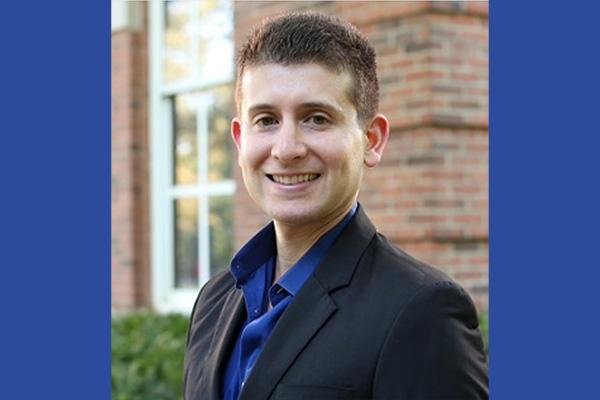Q&A faculty spotlight: Vladimir Kogan

Vladimir Kogan is an associate professor in the Department of Political Science. He studies state and local government in the United States. His research focuses on the intersection of politics and public policy in areas including education and social policy. Kogan's affiliated with Ohio State’s Institute for Democratic Engagement and Accountability, the Education Governance and Accountability Project, and the Translational Data Analytics Institute. He received his BA, MA, and PhD in political science from the University of California, San Diego.
Describe your current research or area of interest
My research focuses primarily on state and local government, with a focus on thinking about how the decisions voters make on Election Day ultimately impact public policy and service delivery. Most recently, my work has focused on K-12 education. This is an interesting policy area because we make education policy through elections but the primary constituency — students — don’t actually get to vote. It raises important questions about whose interest are served by local elections and democratic control of public schools.
What/who influenced you to select your area(s) of study and how has that impacted your career?
When I was in graduate school, I was lucky enough to have three different advisors all of whom had very different approaches to research. One of them, Steve Erie, was a local government scholar and invited me to get involved in a book project about San Diego politics that ultimately turned into a book we published (Paradise Plundered). I learned a lot working with Steve and it is definitely related to my interests today. In addition, before graduate school, I worked as an education reporter for an online nonprofit local investigative journalism organization in San Diego (voiceofsandiego.org), which helped contribute to my interest in education.
What undergraduate classes do you teach?
- Political Science 4125: American State Politics
- Political Science 4127: Governing Urban America
- Political Science 4130: Law and Politics
Soon, there will be another class as well: Political Science 2120: ‘Follow the Science?’ The Politics of Health.
Why would you encourage students to take these classes, and how might they be of interest to students majoring in other disciplines?
Each of these courses focus on some of the most controversial public policy debates in our society. I think these classes are invaluable for helping students really understand these issues and become effective citizens.
What aspects of your teaching give you the most satisfaction?
I really enjoy hearing from students after they leave my class, when they write me emails making connections between the things we learned in class and current events. I’ve also been at Ohio State long enough that I have many former students who are now working in government and politics. Checking in with them and seeing how they are using the knowledge and skills from my classes in the real world is truly rewarding and satisfying.
Are there opportunities for undergraduates to connect with you for research or creative activity?
I’m currently working on a project called the Effective School Boards Initiative. This project has two parts: (1) Understanding what elected school boards spend their time on, and how much (or, realistically, how little) of their focus is on student outcomes and their wellbeing; and (2) helping train school boards to make them more effective. This is a national, multi-university collaboration that is led by AJ Crabill, the former deputy education commissioner from the state of Texas and an incredible force of nature in this policy space. We are recruiting undergraduate research students to work with on this project.
What book/movie would you recommend, or what music do you enjoy?
In terms of local politics, I think students absolutely must watch HBO’s “The Wire.” This show has so many insights and nuggets about local politics. In fact, my Governing Urban America course is actually organized around this show.
In terms of books, one of my favorite books about Ghettoside, by Jill Leovy, an incredibly powerful deep dive into policing and crime in urban America.
What is the best advice you’ve received?
There is a really interesting concept in psychology called the “end of history illusion.” The idea is that people recognize how much their life, preferences, and priorities has changed over the past decade, but also greatly underestimate how much all of these things will change in the future. It is a really powerful and important idea. The lesson is that we all need to be open-minded, accept that our current knowledge and beliefs are tentative and probably incomplete, and approach life accordingly.
What advice would you give to undergraduate students?
I think a huge part of college is what takes place outside of the classroom — in terms of meeting new people, developing one’s own sense of identity and priorities, and engaging in co-curricular activities like internships.
When you encourage students to stop by your office hours, what do you most love talking about?
Feel free to stop by my office hours. I love to talk about state and local politics issues — especially education, policing, and economic development.
Would you like to share a fun/interesting fact about yourself?
I was born in Russia and moved the US when I was eight.
Learn more about Professor Kogan's work, email and office location on his department page.
